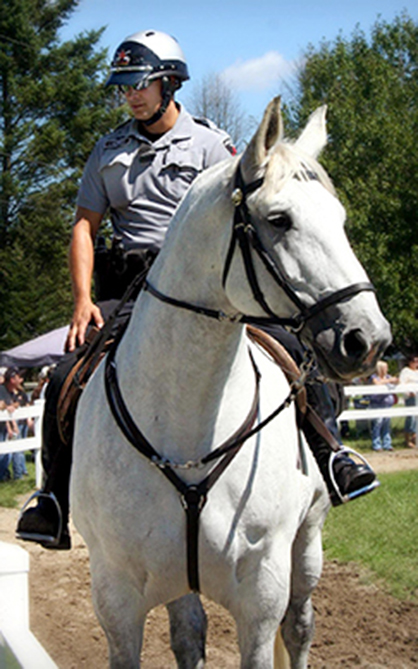Abdominal Hernia Repair in Horses Using Polyester…?
April 12, 2016 Comments Off on Abdominal Hernia Repair in Horses Using Polyester…?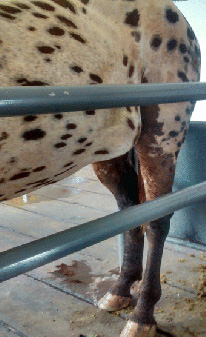
Such wounds are challenging to treat because of the weight of the abdominal contents bearing down on the surgical repair. The damaged muscle layers may not be strong enough to withstand the tension on the sutures used to repair the defect. It is often necessary to implant some mesh to strengthen the damaged muscle layers and repair the defect.
Continue reading …Tips With Tivoli: Learn How Western Pleasure is Judged
April 12, 2016 Comments Off on Tips With Tivoli: Learn How Western Pleasure is Judged
Understanding the judging hierarchy demystifies how a Western Pleasure class should be judged. It gives both the judge and the exhibitor a qualitative framework to evaluate a horse’s performance.
Continue reading …Could a Top Chef Hold the Secret to Making Your Horse Business More Profitable and Efficient?
April 4, 2016 Comments Off on Could a Top Chef Hold the Secret to Making Your Horse Business More Profitable and Efficient?
Your work day is limited like the restaurant chef’s. It’s a time based revenue system. When you get behind due to lack of preparation and inefficient systems, lessons run behind, students are unhappy, other business tasks don’t get done, and tension and frustration build for you and your staff. Here are a few suggestion of what a mise-en place philosophy might look like for your lesson and horse business where you are prepared and ready for work each day.
Continue reading …Researchers Use “Camera Pill” To Take Unprecedented Look Inside a Horse’s Intestine
March 30, 2016 Comments Off on Researchers Use “Camera Pill” To Take Unprecedented Look Inside a Horse’s Intestine
The team used an endoscopy capsule about the size and shape of a vitamin pill—a sort of “mini submarine” with a camera—to have a look inside a horse.
Continue reading …Equine Pregnancy: What to Expect When Your Horse is Expecting
March 30, 2016 Comments Off on Equine Pregnancy: What to Expect When Your Horse is Expecting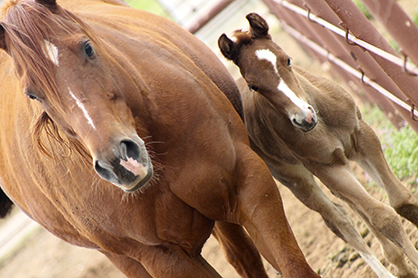
During the lecture, she will discuss regular timing for evaluation of the mare, routine management (including vaccination and deworming), and signs of giving birth or of impending abortion. Specific topics such as twins, fetal gender identification, and placentitis also will be covered.
Continue reading …Video Explanation of How Arena Footing Affects the Biomechanics of a Horse’s Stride
March 29, 2016 Comments Off on Video Explanation of How Arena Footing Affects the Biomechanics of a Horse’s Stride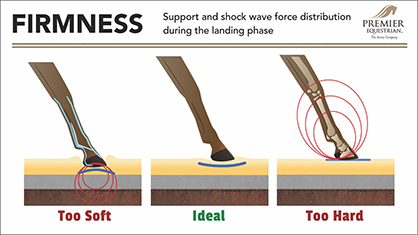
“I was shocked when I learned about hoof mechanism and how blood is circulated throughout the horse’s body,” she said. “I didn’t know the foot plays a critical role in the cardiovascular system. Working on this project has changed the way I look at what surface my horse is on, how he reacts, and what he’s communicating to me.”
Continue reading …Reduce Your Horse’s Risk of Infection When Traveling
March 28, 2016 Comments Off on Reduce Your Horse’s Risk of Infection When Traveling
Reduce Your Horse’s Risk of Infection When Traveling
Continue reading …Study Shows Therapeutic Horseback Riding Significantly Decreases PTSD Symptoms in Military Veterans
March 23, 2016 Comments Off on Study Shows Therapeutic Horseback Riding Significantly Decreases PTSD Symptoms in Military Veterans
Veterans participating in THR had statistically significant decreases in their PTSD symptoms throughout the study period; and the benefit increased the longer an individual was in the riding program.
Continue reading …Revolutionizing Equine Imaging With First Specialized CT Scan For Horses
March 15, 2016 Comments Off on Revolutionizing Equine Imaging With First Specialized CT Scan For Horses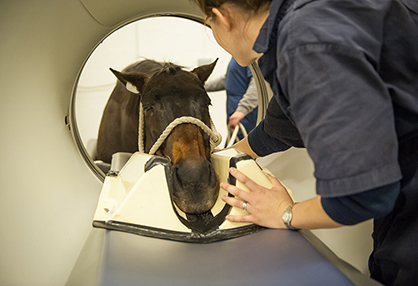
CT and MRI produce virtual slices of structures that can be used to form a 3D picture, making it possible to identify very small, but clinically significant lesions (such as tooth root abscesses) amongst very complex anatomy.
Continue reading …








